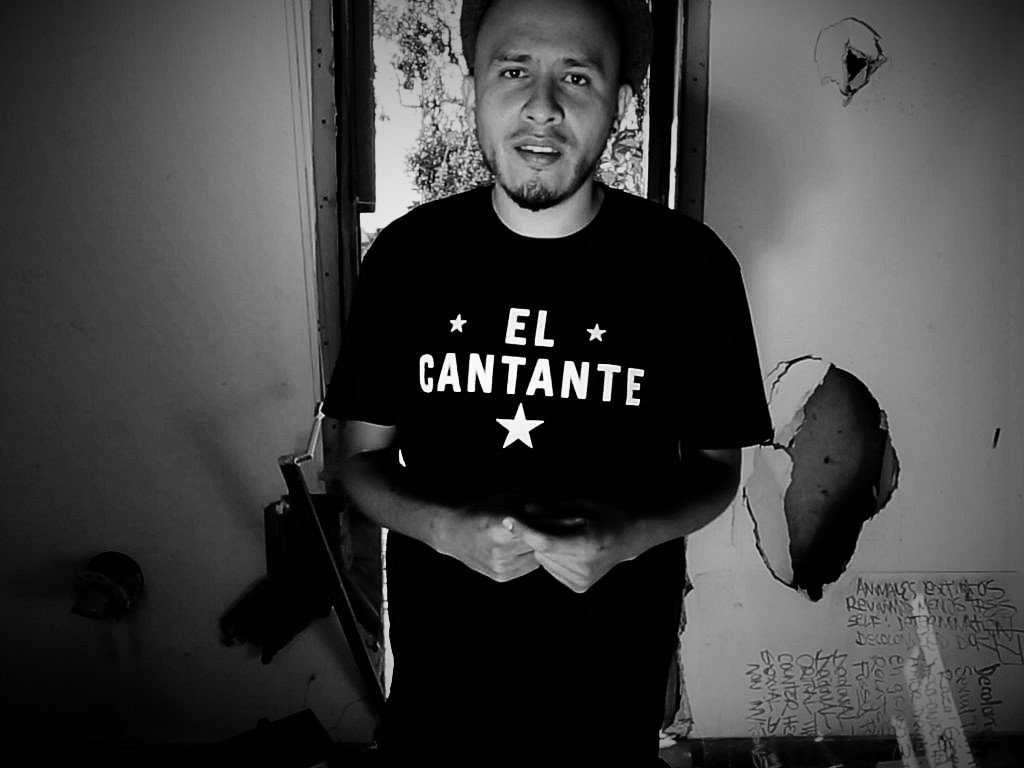
Written by @kiddieriot
Rap has a history of being socially and politically aware, stretching back to its very beginnings. Rhymes concerning people’s struggles are still out there, talking about injustice and resistance. Bocafloja is one of those emcees who has built his whole career around speaking out against the evils of capitalism and imperialism. He is also one of the most lyrically gifted and beloved rap artists in Mexico.
In fact, before Bocafloja, rap music in Mexico was another element to be used by dance pop numbers to make it sound modern and “fresh”. Hip-hop in our country was practically non existent at all, the culture was as alien to us as a kimchi taco. It took many people to establish it as a cultural force worth to delve in and express ourselves with, that it could be part of our culture. When artists like Bocafloja started along with him it was the first instances of the music being done earnestly from the ground up.
Bocafloja started in the mid Nineties, developing an interest in the music very early on thanks to friends and family who had migrated to the US and brought dope beats back for Aldo Villegas to lose his mind to. He soon began writing rhymes, often concerning far more pragmatic and materialistic subject matters than what he would become known for. He and his buddies interested in emcees and DJs began gathering art parties where they would play their favorite tracks; just a small circle of friends. Hip-hop in Mexico never grew so much into a big phenomenon like it is in other parts of the world, it has grown out of the small parties of its beginnings but it still a tightly knit scene with its own codes and languages, and above all, devoted fellowship.
Aldo adopted the stage name Bocafloja at some point and was part of some Nineties groups like Lifestyle and Microphonk, but it wasn’t until the turn of the millennium when he ventured at it solo and began his journey. It’s here that his sociopolitical consciousness began to take hold and became the backbone of his raps. His first release was an EP called Lengua Insurrecta and he hasn’t stop to put out records every couple of years, in addition to collaborating with some of the biggest names in Latin American hip-hop and some other territories
His rhetoric is unapologetically socialist and communist, and his heart is with the oppressed the poor, the unwashed. Having said that, not every one of his raps are about guerilla warfare or corrupted politicians; he comments on many subject matters, each time with a mature and informed point of view, from the gut filtered through the mind. In a song like “Las Estaciones” he reflect on the nature of relationships while others talk about unity between crews and people of color.
He’s part of the Quilomboarte collective which basically is another stage where Bocafloja can put to practice what he raps. With other like minded artists in many artistic disciplines, they give voice to indigenous people, speak out against corporate greed and even tackle illegal citizen issues. They often do events in the New York, where Villegas now resides.
But what about the music? Bocafloja prefers his beats old school but not so old school. He likes the relaxed flow of the Nineties with the occasionally journey into soul and jazz over which he brings forth his heavy, didactic and lyrical flow. It’s a sound that helps communicate his message and which has earned him a spot among Mexican b-boys and girls, becoming a mainstay of festivals and often awarded for his music.
Bocafloja keeps on moving, not only making more poignant music but also looking for different ways to spread his message. Above all, he remains true to his ideals and likes to set an example in everything he does. It’s this congruence that’s so lacking with most artists these days, it’s fresh to see such a social commentator not get swept up in hypocrisy or hype. After all, for Bocafloja, hip-hop is a labour of love.